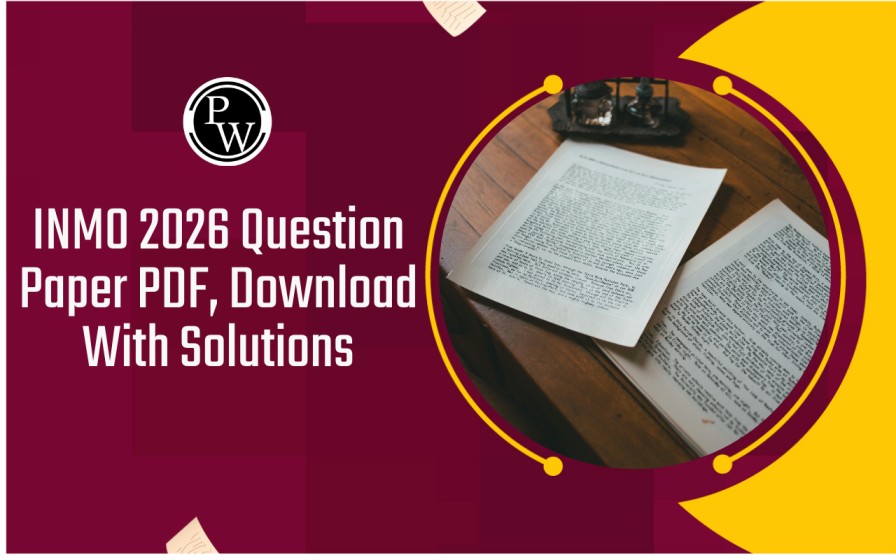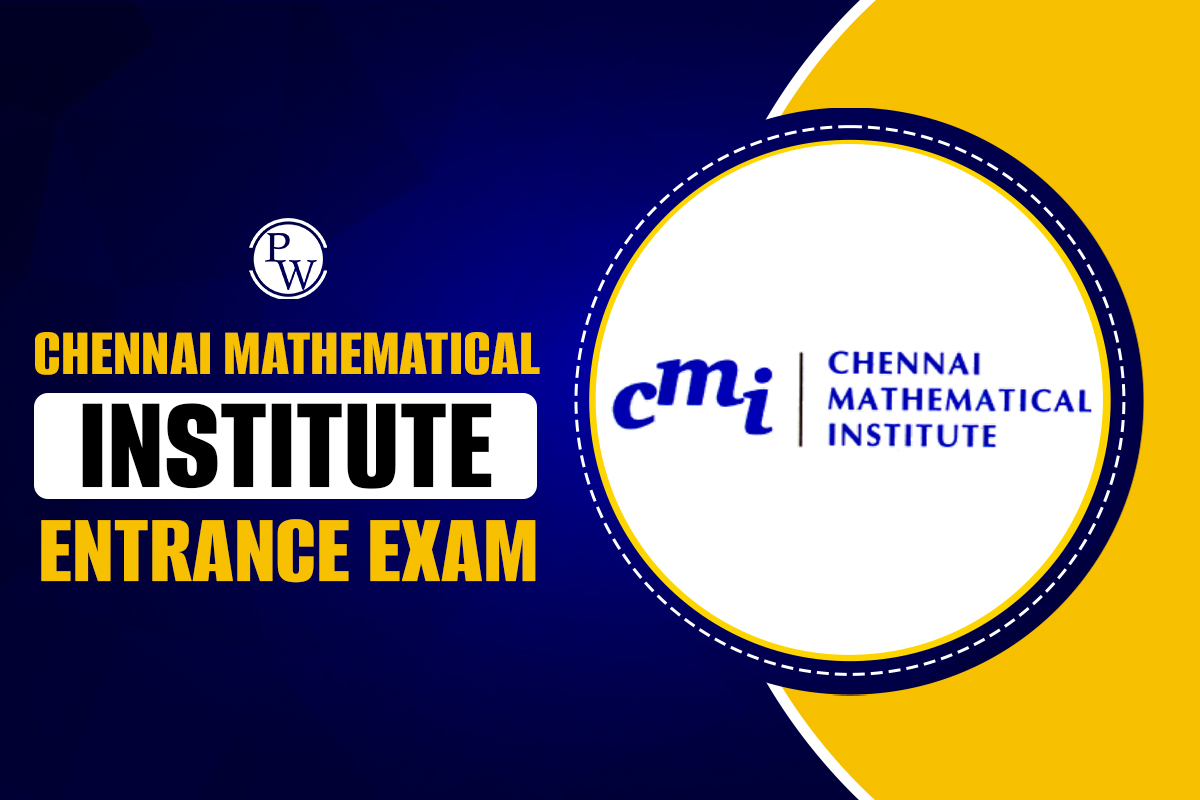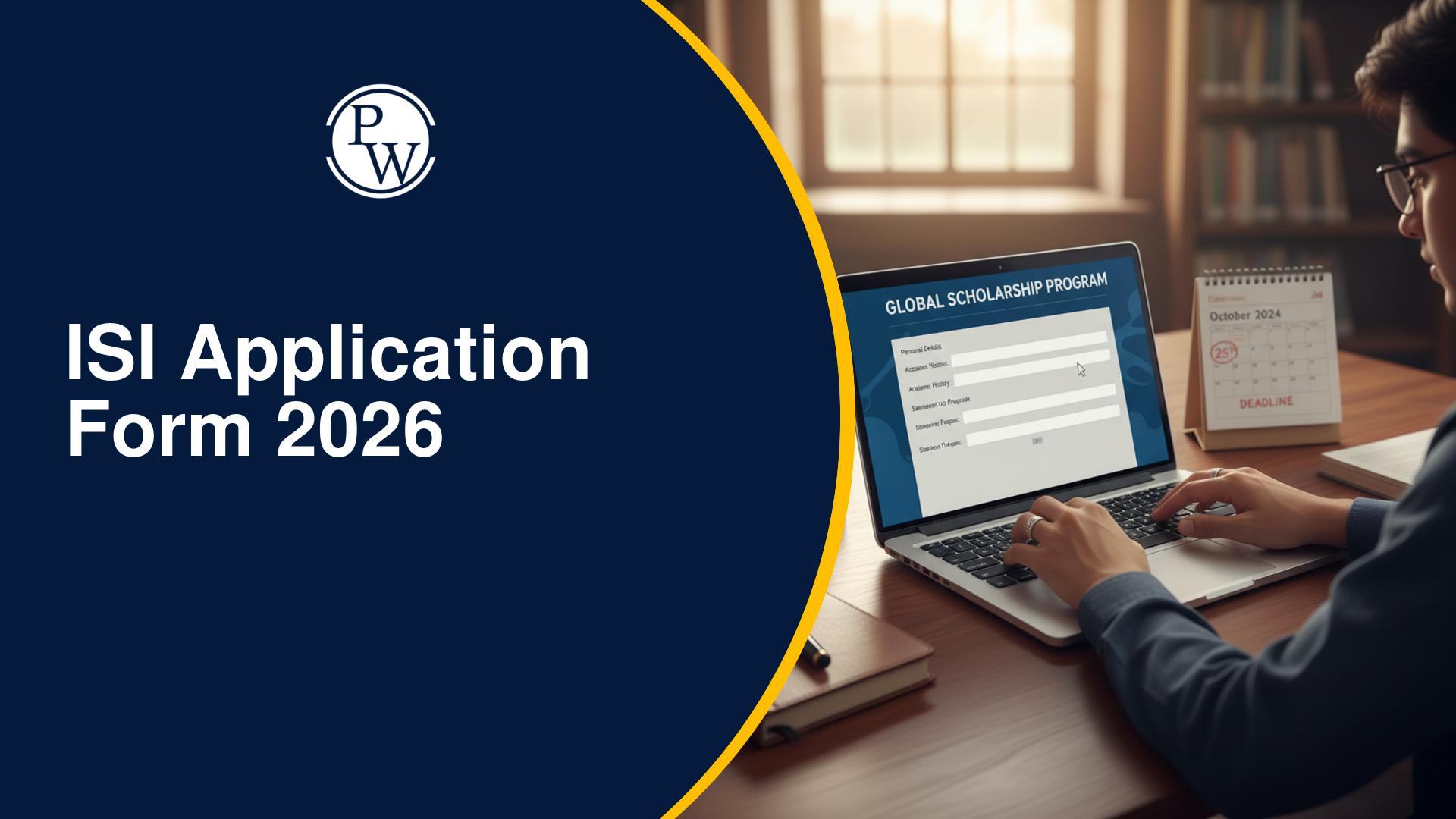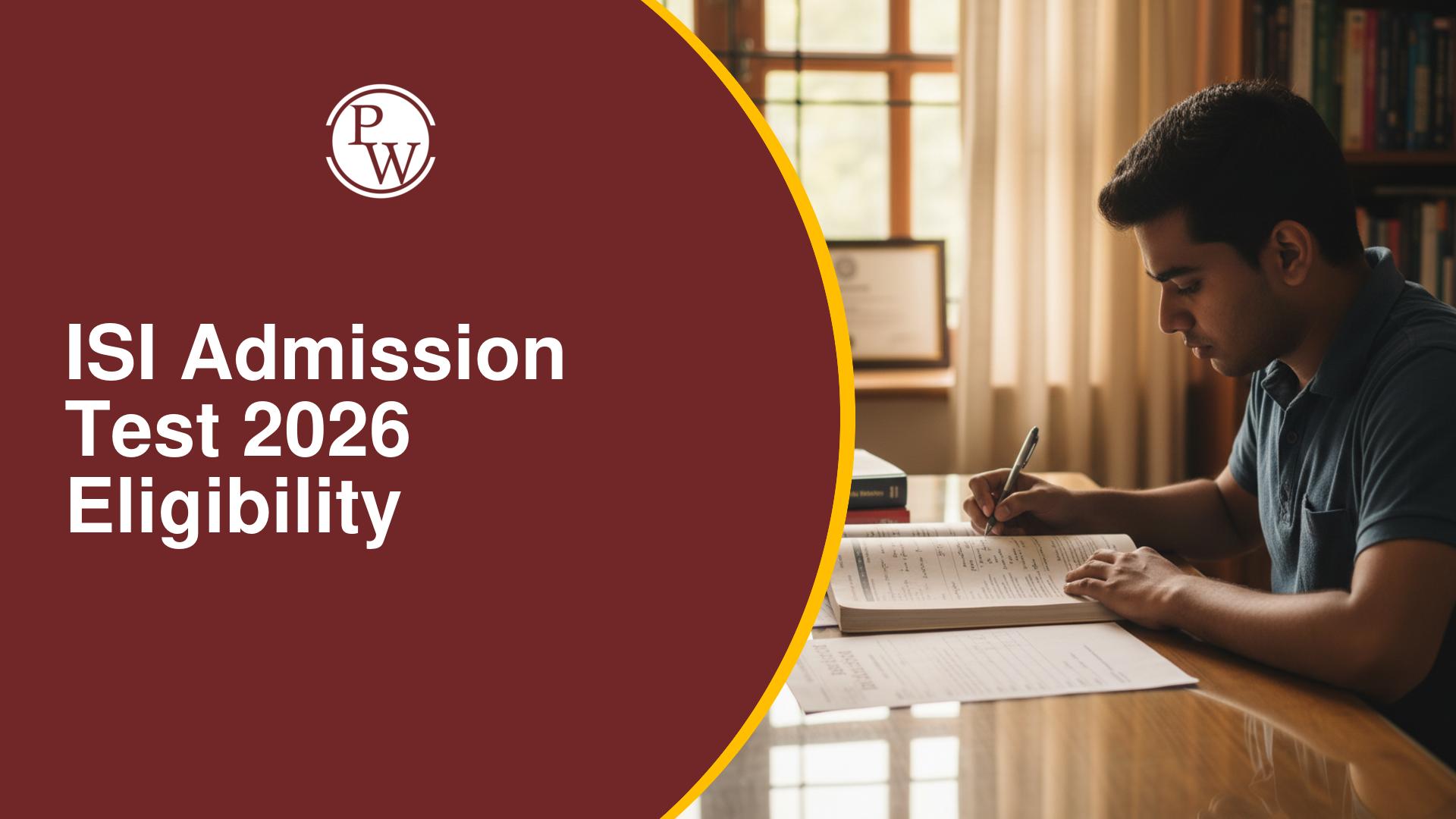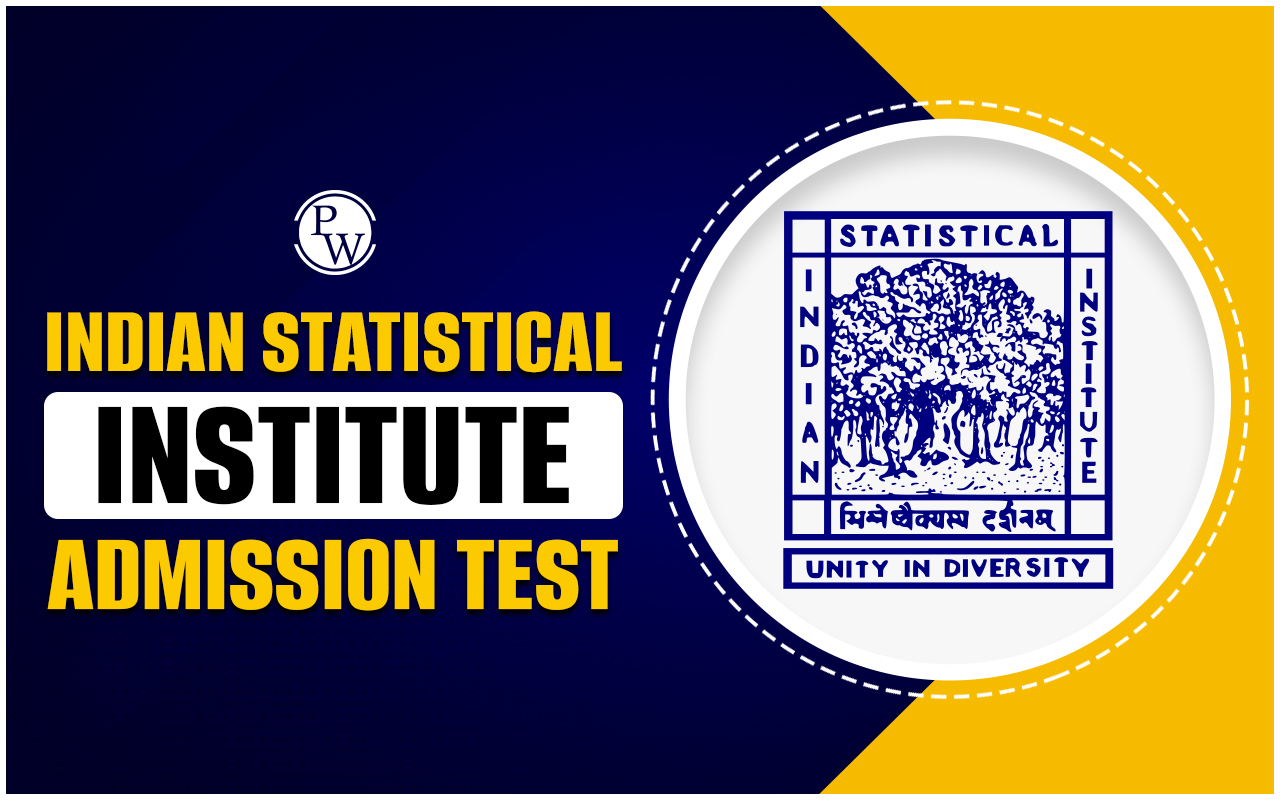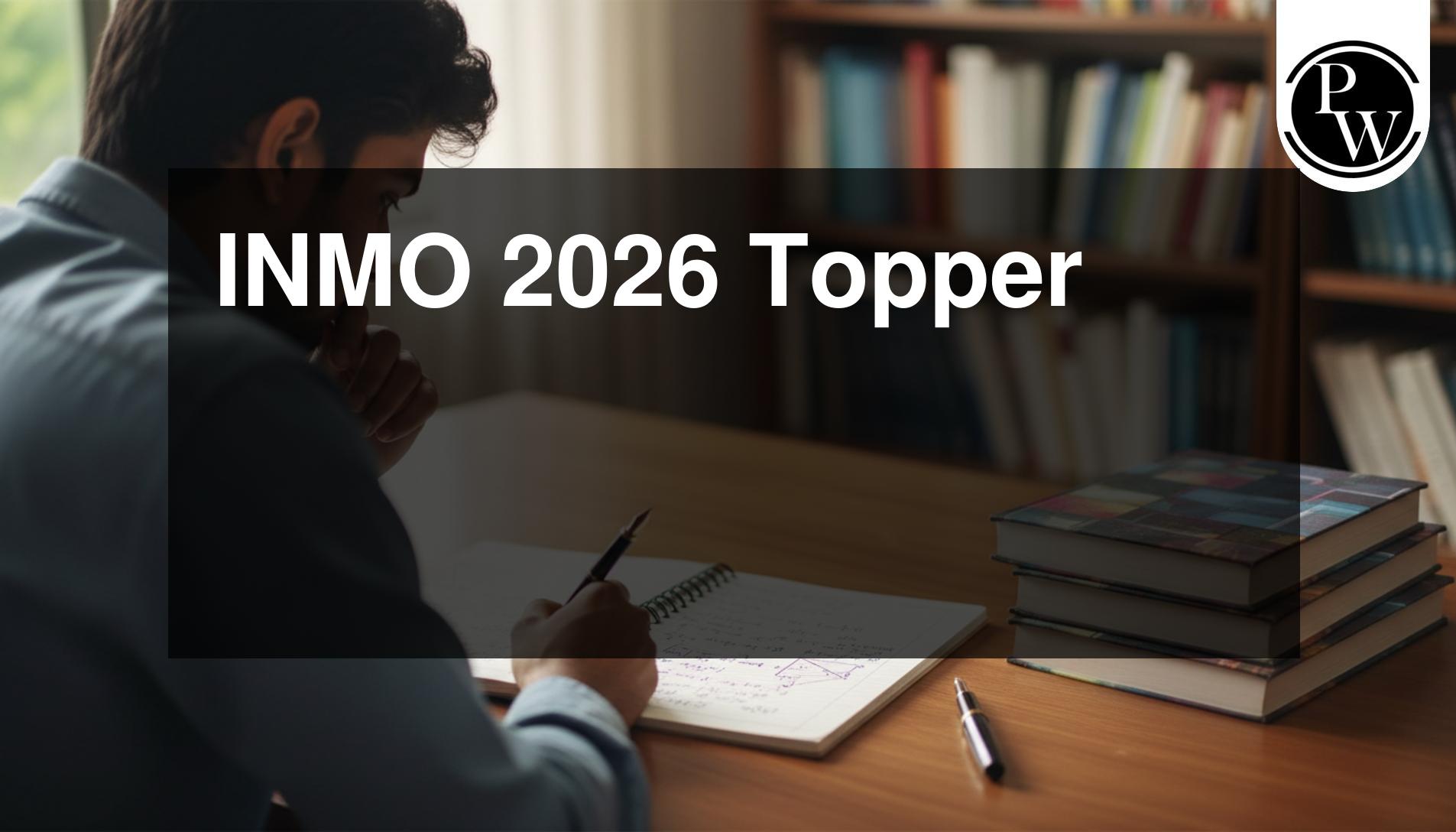
What is an Olympiad?
Olympiads are a type of competitive examination, conducted among schools, to identify outstanding students with exceptional potential, talent, aptitude, and intelligence.
The term ‘Olympiad’ originates from Greek, signifying a four-year interval. This word was originally associated with the Olympics.
The primary objective is to improve conceptual learning. It involves examining the remarkable intellects in a specific area or subject. Furthermore, these assessments enhance an individual's academic performance.
The national-level olympiads are arranged to discover brilliant minds and further illuminate them to create a robust team for International Olympiads.
Also Read: ISI Result 2025
Olympiad Preparation Tips
To get ready for Olympiad exams, concentrate on establishing a solid base in the subject, gain a comprehensive understanding of the exam structure, practice using past exam papers, enhance your problem-solving abilities, emphasize time management, recognize and address your weaknesses, and maintain motivation and focus during your preparation period.
Create a Study Plan:
Establish a daily study routine that divides topics evenly across the available time. Consistent daily practice is crucial for retention and mastery of subjects. Set Clear Goals: Define achievable daily and weekly targets, such as completing specific chapters or practice tests. This helps maintain focus and motivation.
Understand the Exam Structure
Familiarize with Patterns: The initial phase in getting ready for the Mathematics Olympiad involves comprehending the examination format. Various levels and organizations might present different structures, so make sure to familiarize yourself with the details, including the total number of questions, kinds of problems (multiple choice, short answer, or long-form solutions), and the time set for the exam.
Understand the exam format, including the types of questions (often multiple-choice) and the marking scheme. This knowledge aids in strategizing your preparation effectively.
Develop a strong foundation: Olympiad examinations require a profound comprehension of essential concepts. Reinforce your base by going over the fundamental concepts of the subject. Examine your textbooks, notes, and reference sources to ensure understanding of significant topics.
Ask teachers or mentors for assistance to resolve any uncertainties you might have. Establishing a solid foundation will not only aid you in addressing intricate problems but will also boost your overall self-assurance.
Practice Regularly
Daily Problem Solving: Engage in regular problem-solving activities. Aim to solve a variety of problems daily to improve your skills.
Mock Tests: Participate in mock tests to assess your performance and identify areas for improvement. This will also help you manage time effectively during the exam.
Helps you get accustomed to the exam format. Enables you to focus on subjects or topics where you need improvement. Time management during the exam is crucial, and practice helps improve it.
Develop Problem Solving Skills
Learn Various Approaches to Problem-Solving: Mathematics Olympiad challenges frequently demand innovative thinking and unconventional methods.
Explore different problem-solving strategies, including mathematical induction, pigeonhole principle, and generating functions. These techniques can offer fresh insights and solutions.
Engage in Regular Practice: Regular practice is crucial for enhancing your problem-solving abilities. Allocate specific time daily to work on a range of problems. The more you engage in practice, the more adept you’ll become at recognizing patterns and formulating strategies.
Seek Guidance
Coaching or Mentors: Consider joining coaching classes or seeking guidance from experienced teachers. They can provide personalized feedback and help clarify doubts.
Olympiad Wallah coaching is Ideal for understanding concepts in Mathematics and Science. Provides excellent video lessons and quizzes. Offers practice tests and mock exams.
Effectively utilizing these resources can assist in covering extensive material in a shorter time.
Seek Help from Teachers and Mentors: If you're having difficulty with certain topics, don't hesitate to contact your teachers or mentors. They can give you the clarity needed to approach tough concepts more effectively.
Sometimes, a brief discussion can prevent hours of confusion. They may recommend shortcuts and methods for tackling challenging questions. Keeping you inspired during stressful preparation times.
Stay Motivated and Focused
Peer Support: Surround yourself with peers who share similar goals. Discussing problems with peers can enhance your understanding and motivation.
Regular Self-Assessment: Conduct regular self-assessments to track your progress and stay motivated.
Focus on Weak Areas
Identify your weak areas through self-assessment and focus on improving them. Allocate more time to these topics in your study plan.
Healthy Lifestyle and Stress Management
Preparing for exams can be mentally draining, and anxiety may negatively affect your performance. It’s essential to uphold a healthy equilibrium between studying and resting.
After every 45 minutes of studying, take a 5-10 minute break.
A 15-minute walk or short exercise can invigorate your mind.
Stay hydrated and eat nutritious foods: Proper nutrition is crucial for maintaining optimal brain function.
Mindfulness techniques such as meditation can also alleviate stress and enhance concentration, allowing you to study more.
Final preparation tips for Olympiad Exam
In the final days leading up to the exam, refrain from studying new subjects. Concentrate on reviewing, completing practice tests, and keeping a serene attitude.
Double-check your exam kit: Confirm that you possess all necessary items for the exam (admit card, pens, etc.).
Get a minimum of 7-8 hours of sleep.
Look over your brief notes, formulas, and crucial concepts. Having a thoroughly prepared mindset is half the victory achieved.
How Parents Can Support Children in Olympiad Preparation?
Supporting a child in Olympiad preparation involves a combination of emotional support, practical guidance, and fostering a conducive learning environment. Here are some strategies parents can use:
Emotional Support and Motivation
-
Encourage Confidence: Be a cheerleader for your child, providing words of encouragement to boost their self-belief and confidence.
-
Manage Stress: Teach stress management techniques like deep breathing, meditation, or yoga to help reduce anxiety and improve focus.
-
Celebrate Efforts: Acknowledge and celebrate your child's efforts and achievements, regardless of the outcome, to keep them motivated.
Practical Support
-
Structured Study Environment: Create a quiet, well-organized study space with necessary resources like books and online tools.
-
Study Schedule: Help establish a regular study schedule that balances Olympiad preparation with schoolwork and leisure activities.
-
Mentorship: Arrange for a mentor, such as an experienced teacher or Olympiad alum, to provide guidance and feedback.
Learning Enhancement
-
Practice Materials: Encourage the use of previous year question papers and mock tests to build confidence and identify weak areas.
-
Interactive Learning: Engage your child with interactive resources like puzzles, quizzes, and educational games to make learning fun.
-
Peer Learning: Encourage participation in study groups to foster collaboration and diverse perspectives.
Balancing Life and Studies
-
Extracurricular Activities: Support participation in extracurricular activities to ensure a well-rounded experience.
-
Relaxation Time: Ensure your child has time for relaxation and hobbies to maintain mental health
Olympiad Exam Recommended Books & Resources
Astronomy
- Fundamental Astronomy – Hannu Karttunen
- Introduction to Modern Astrophysics – Bradley W. Carroll & Dale A. Ostlie
Biology
- NCERT 11+12th
- Biology:A Global Approach by Campbell,Urry, Cain, Wasserman, Minorsky, Reece
- Raven Biology of Plants by Susan E. Eichorn (Author), Ray Evert (Author)
Chemistry
Organic-
- J.Clyden
- Peter Sykes
Inorganic-
- JD lee
- Asim k Das
- Vogel (for salt analysis )
Physical chemistry
1. Bruce M mahan
Physics
- Classical Mechanics- David morin
- Electricity and magnetism:- Edward Purcell and David Morin / Griffith
- Optics and wave:- Eugene Hetch
- Thermodynamics :- Schroeder
Maths
- Challenge and Thrill of Pre-College Mathematics
- Problem Primer for the Olympiad
- Higher Algebra - Hall _ Knight
Olympiad Preparation Tips FAQ
Q1. Where can I get the Olympiad Preparation Tips?
Q2. What are the Olympiad Exam Preparation Tips?
Q3. Do one must go through the Olympiad Previous Year Question Papers?
Q4. What should I do in the last week of the Olympiad Exam?
Q5. Common Mistakes to Avoid during Olympiad Preparation?


